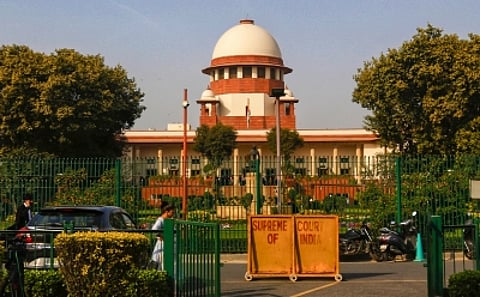
New Delhi- In a landmark order on July 29, the Supreme Court overturned a controversial Jharkhand High Court decision that conditioned pre-arrest bail for accused on resuming conjugal life with his wife. The apex court, led by Justices Dipankar Datta and Augustine George Masih, deemed the condition legally unsustainable, emphasizing that bail stipulations must strictly align with Section 438(2) of the Code of Criminal Procedure, 1973. The case, arising from serious allegations of dowry harassment and attempt to murder, has been remanded to the Jharkhand High Court for a fresh hearing, with interim protection extended to Kumar until a final ruling.
The case stems from Ranchi Mahila Police Station Case No. 11 of 2024, where Anil Kumar faces charges under Sections 498-A (cruelty to a married woman), 323 (voluntarily causing hurt), 313 (causing miscarriage without consent), 506 (criminal intimidation), 307 (attempt to murder), and 34 (common intention) of the Indian Penal Code, 1860, alongside violations of Sections 3 and 4 of the Dowry Prohibition Act, 1961.
The Jharkhand High Court, in its February 25, judgment, had granted Kumar pre-arrest bail but mandated that he resume conjugal life with his wife and maintain her with “dignity and honour.” Kumar appealed this condition, arguing it overstepped legal boundaries.
The Supreme Court criticized the High Court’s imposition, stating, “A condition such as the one impugned before us ought not to have been imposed in view of several decisions of this Court.” Citing precedents like Mahesh Chandra v. State of U.P. (2006) and Munish Bhasin v. State (NCT of Delhi) (2009), the court clarified that bail conditions must be grounded in Section 438(2), Cr. PC, and not extend to personal or subjective requirements unrelated to the legal framework.
Addressing the contention that Kumar had agreed to resume conjugal life, the court acknowledged his willingness but noted that the additional condition of maintaining his wife with dignity and honour was not mutually agreed upon. The justices cautioned, “Imposing a condition that the appellant would maintain the respondent no.2 with dignity and honour is beset with risk in that it can generate further litigation.” They warned that such a condition could lead to future disputes, such as bail cancellation claims, which would burden the High Court with resolving complex factual disputes in a bail proceeding.
The court further observed, “The High Court should have considered the prayer of the appellant for pre-arrest bail entirely on its own merit instead of imposing a condition which is not traceable to Section 438(2), Cr. PC.” As a result, the impugned judgment was set aside, and the bail application (A.B.A. No. 4200 of 2024) was restored to the Jharkhand High Court for a fresh evaluation on its merits. The Supreme Court directed the High Court to decide the matter promptly and extended Kumar’s interim protection, initially granted on April 3, 2025, until the final decision.
The hearing involved counsels Ranjeet Kumar, Simanta Kumar, Mithlesh Kumar, and Dr. Pratap Singh Nerwal for the appellant, and Pallavi Langar, Sujeet Kumar Chaubey, Sandeep Jha, and Rita Jha for the respondents.
You can also join our WhatsApp group to get premium and selected news of The Mooknayak on WhatsApp. Click here to join the WhatsApp group.